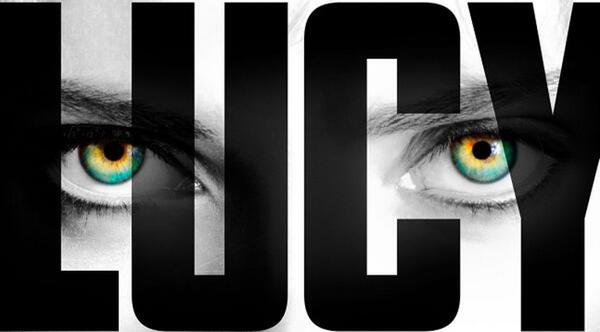Despite its persistence, the theory that human beings use only 10 percent of their brain's capacity has long since been proven false -- the scientific community's equivalent of an urban legend -- but that hasn't stopped storytellers from exploiting the way the myth has seeped into the public consciousness. The widespread fallacy is an easy storytelling device to make their tales appear to be weighted more heavily on the side of science than fiction.
�
�

�
Scarlett Johansson stars as the titular Lucy, an American grad student living in Taipei. As the movie opens, she's being coerced by her shady new boyfriend to deliver a locked suitcase to a hotel where a cold-blooded Korean gangster named Mr. Jang (Choi Min-sik, of Park Chan-wook's "Oldboy") awaits its arrival. Before you can say "poor life choices," the boyfriend has been shot dead and poor Lucy is strong-armed by thugs and brought up to Jang's suite. She's to be used as a mule to transport the contents of the suitcase, a experimental new designer drug called CPH4, which promises to unlock those previously untapped portions of our mind and ostensibly give the user one hell of a high along the way. But almost immediately the bag containing the CPH4 inside her bursts, giving her an extreme overdose of the drug. And that's when "Lucy" really starts to get nuts.
�
�

�
As the chemical floods her body, it gives Lucy progressively more control of her brain (title cards appear throughout the film letting us know exactly what percentage Lucy has gained access to), resulting in the development of superhuman powers. The rationale Besson uses comes from the pseudoscience spouted by Professor Norman (Morgan Freeman), the neuroscientist whom Lucy contacts to learn about what fate might await her. Dolphins utilize 20 percent of their brain, he explains, and that extra oomph gives them sonar capabilities. He hypothesizes that with increased cerebral activity, humans might obtain similar skills. This soon proves true, as Lucy gradually gains the ability to control every cell in her body, then other people, electronics, and eventually all of time and space itself. Her powers are so vaguely defined, with new abilities developing so rapidly it's impossible to keep up as she transitions from party girl to invincible force of nature.

�
Johansson's performance as Lucy is an interesting synthesis of the characters she's portrayed in "Her" and "Under the Skin," with a bit of Black Widow thrown in for good measure. Lucy demonstrates a Samantha-like eagerness to expand her mind beyond its established limits, but like the alien being in "Under the Skin," her journey away from humanity renders her increasingly detached and emotionless. At a certain point she realizes that the drug's effects will eventually kill her, but as Lucy whizzes her way toward full transcendence, that becomes less of a pressing concern to her. Jang and his lackeys do chase after her, but it's difficult to get too worried the well-being of godlike superhero. Without any sort of stakes, it becomes difficult to empathize with such a cold protagonist. "Skin" director Jonathan Glazer managed it in his film, but Besson doesn't have the same skill with character.

�
What he does have is a brilliant mind for action. Besson is more interested in telling his pulpy tale through kinetically staged action, colorful cinematography (from frequent DP, Thierry Arbogast) and trippy imagery.
To put it bluntly, the plot of "Lucy" is completely stupid. It doesn't make a lick of sense if you take even a moment to think about anything that's happening, but Besson is a smart enough filmmaker to keep things moving fast enough that you never have the chance. As with Bong Joon-ho's "Snowpiercer," there's a point where you realize that the plot isn't going to hold up to scrutiny, so just accept it, sit back, and enjoy the ride.
To put it bluntly, the plot of "Lucy" is completely stupid. It doesn't make a lick of sense if you take even a moment to think about anything that's happening, but Besson is a smart enough filmmaker to keep things moving fast enough that you never have the chance. As with Bong Joon-ho's "Snowpiercer," there's a point where you realize that the plot isn't going to hold up to scrutiny, so just accept it, sit back, and enjoy the ride.

�
While the action is great, the director is somewhat less successful when he tries to marry those images with philosophical mumbo jumbo about the meaning of time, evolution, and whether we as a species have truly lived up to our potential. These stabs at profundity are intended to give the film an appearance of depth, but more often resemble what might have happened if Kubrick's "2001: A Space Odyssey" suffered a severe head injury while overdosing on psychotropic drugs. But as long as it's bombarding us with bright colors, violent shootouts, elaborate car chases and effects, "Lucy" is quite a rush.
�
�
